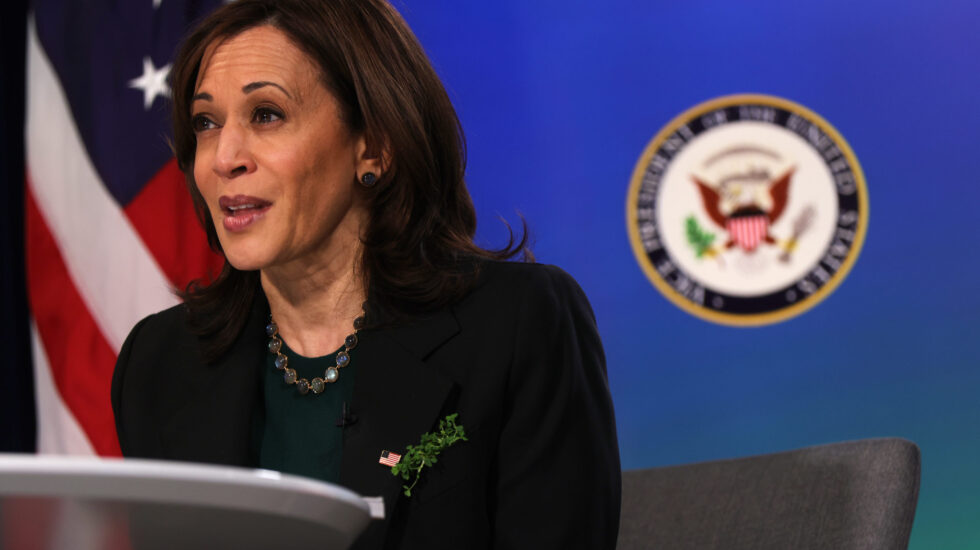No politician is perfect, far from it. Every person who holds office faces criticism. Vice President Kamala Harris is no stranger to this. She’s faced scrutiny throughout her career, but it is undoubtedly reaching new heights when she became the highest-ranking female politician in U.S. history. Politico recently published a story titled, “‘Not a healthy environment’: Kamala Harris’ office rife with dissent.” It highlighted her recent problems with the dubious assignment given her, the border. The article was based on interviews with “22 current and former vice presidential aides, administration officials and associates of Harris and Biden” who “described a tense and at times dour office atmosphere.” We aren’t discounting the gripes, but what do you think, would the same complaints be lobbed at Harris were she a man. Tense? Dour? Is this another way of saying she isn’t warm and fuzzy? Hillary Clinton could relate. She was often referred to as the b-word. It’s the type of criticism that has also been lobbed at women like Speaker of the House Nancy Pelosi and Congresswoman Alexandria Ocasio-Cortez.
In an article back in 2016, The Atlantic explored the “Fear of a Female President.”
Given the anxieties that powerful women provoke, it’s not surprising that both men and women judge them more harshly than they judge powerful men. A 2010 study by Victoria L. Brescoll and Tyler G. Okimoto found that people’s views of a fictional male state senator did not change when they were told he was ambitious. When told that a fictional female state senator was ambitious, however, men and women alike “experienced feelings of moral outrage,” such as contempt, anger, and disgust.
Los Angeles Times columnist Noah Bierman also recently wrote about the scrutiny that Harris has been facing. He brought up her interview with NBC’s Lester Holt where she was “showing signs of exasperation with questions about why she was not also going to the U.S.-Mexico border in her role dealing with waves of migrants to the U.S.” Bierman wrote:
It was the kind of moment that has even supporters questioning her political acumen — underscoring why Harris, nearly six months into her term as a history-making vice president, consistently lags in polls behind President Biden, has failed to get the same honeymoon with voters, draws more critical media coverage and stands as a bigger target for Republicans.
We can safely bet that one reason for the more critical coverage and also why she is a bigger target for Republicans is because of sexism.
In Vogue, Molly Jong-Fast wrote:
Kamala Harris, the first woman vice president ever, should be more popular than she is. In her biography and her background, she is a politician for our time in a way her old, white male boss is not. By all rights, she should be enjoying some bump from her unprecedented ability to crash through one of the most impermeable glass ceilings.
But it seems to be quite the opposite. The president’s polling remains static, while the vice president’s popularity remains a significant notch lower. In May a YouGov/Economist poll showed her at 41% approval. Biden, meanwhile, polled eight points higher in that same poll. Maybe it’s because he’s old and white and looks kind of like a Republican; the vice president doesn’t enjoy the same elderly white-man protection.
In a recent interview, NBC News writes that Harris’ husband Doug Emhoff “was asked if Harris has been treated differently after becoming the first woman and the first woman of color to be elected vice president.”
“Probably, but so what? She has faced challenges as a groundbreaker her whole career,” Emhoff said. “When you’re breaking barriers, there’s breaking involved, and breaking means you might get cut sometimes, but that’s OK. It’s worth it because she’s leaving a path for others.”



